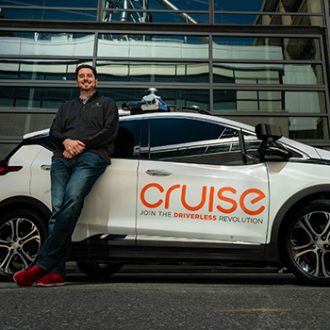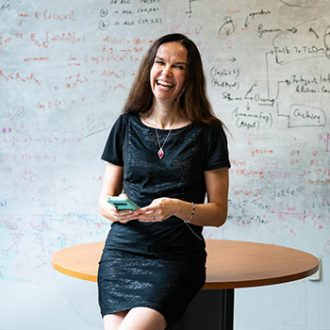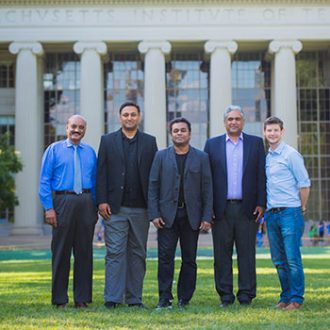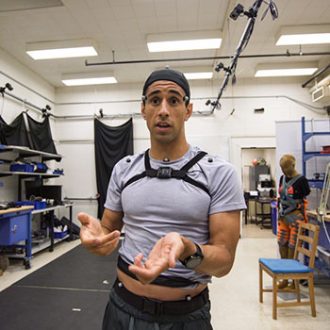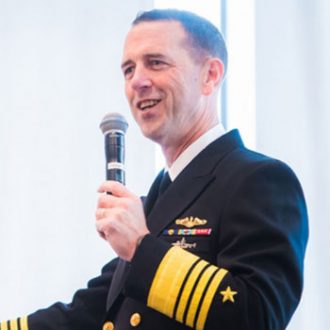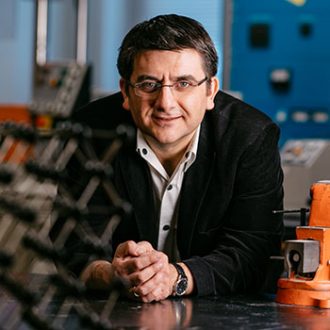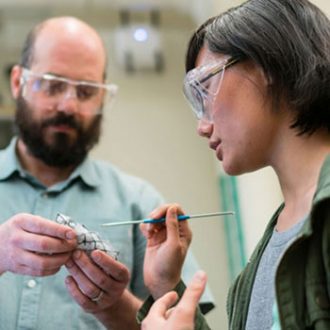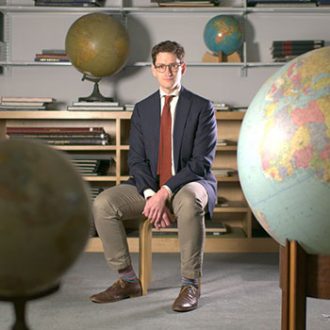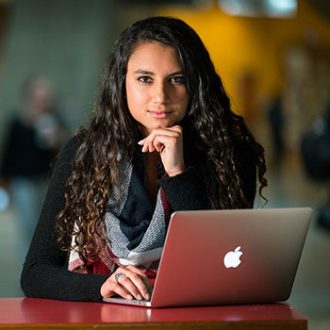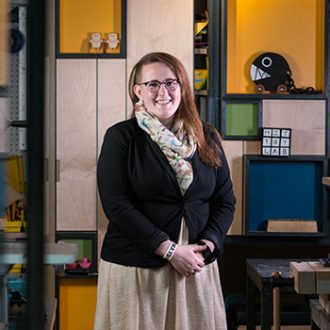MIT Alumnus and GM Engineer Returns to Campus to Inspire Student Innovation
Will Dickson ’14 parks General Motors’ first self-driving vehicle, the Cruise AV, on campus and invites MIT students to think flexibly about its design opportunities. “You are future engineers and thought leaders in the area of new machines,” he says. “How do you design future vehicles like this one better for a safe and autonomous experience?”
3Q: Muriel Médard on the World-altering Rise of 5G
The rise of 5G, or fifth generation, mobile technologies is refashioning the wireless communications and networking industry. The School of Engineering recently asked Muriel Médard, the Cecil H. Green Professor in the Electrical Engineering and Computer Science Department at MIT, to explain what that means and why it matters.
Music as a Gateway to Shared Humanity
When A.R. Rahman, two-time Academy Award winner, singer-songwriter, and music producer from India, came to visit and take a course at MIT in July, he was in his element during a tour of interactive music systems on campus.
If the Spacesuit Fits
Movement really moves Richard Fineman, a fourth-year PhD student in the Harvard-MIT Program in Health Sciences and Technology. Using wearable sensors and a range of complex modeling tools, Fineman is able to measure and understand a body in motion in unprecedented ways. He is using what he’s learning to advance human health and medicine, as well as astronaut garb.
Ties with MIT Run Deep for the U.S. Navy’s Top Officer
Looking back on his MIT graduate student days in the late 1980s, Admiral John M. Richardson SM ’89, EE ’89, ENG ’89 recalls a quieter time. He was not yet helming the world’s most powerful navy, nor was global competition at sea nearly so high.
Modern Metallurgist
If humans are going to be able to travel to Mars one day, Cem Tasan’s research on metals just might play a role in the mission. Tasan, the Thomas B. King Career Development Professor in Metallurgy in the Department of Materials Science and Engineering at MIT, works to produce metals that will bend with the changing times.
The Heart of the Materials
Felipe de Quesada is cut out to be a materials scientist. He likes to design things and see how they work at a microscale: to look at the arrangement of atoms and study their crystal structure. This fascination traces back to boyhood when he created his own toys.
Detecting the Threat of Nuclear Weapons
Will the recent U.S. withdrawal from a 2015 accord that put restrictions on Iran’s nuclear program make it easier for Iran to pursue the bomb in secret? Not likely, according to R. Scott Kemp, an associate professor of nuclear science and engineering at MIT.
An Unexpected Ambition Borne from MIT Experience
Senior Annamarie Bair was determined to become a medical doctor when she arrived at MIT from the Midwest nearly four years ago. She was fascinated by neuroscience but had yet to channel that passion toward what became her true focus: artificial intelligence and health care.
Engineering Joy
MIT senior Isabel “Izzy” Lloyd will graduate this spring with not only a degree in mechanical engineering, but with the pleasure of knowing she accomplished a goal she set for herself as a freshman: to impact those around her in a truly positive way.
